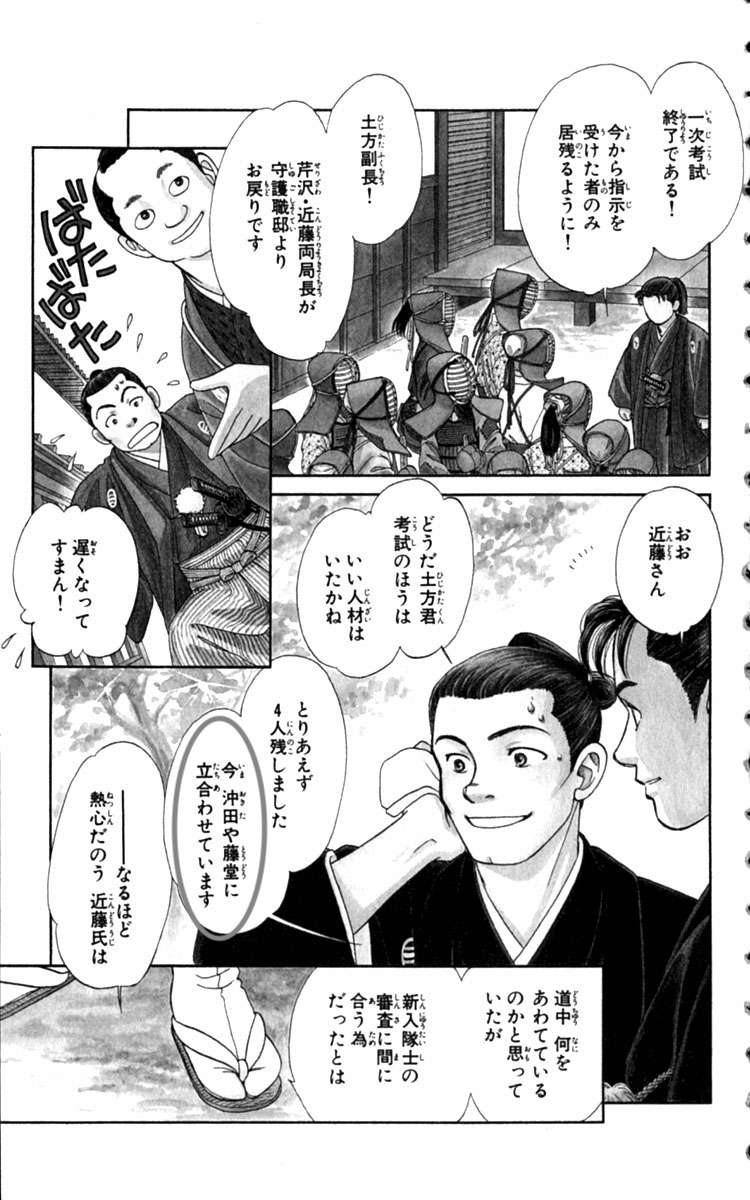I'm trying to read this manga (風光る) for practice and I came across this short sentence
今、沖田や藤堂に立合わせています。 (see image below)
In the English fan translation it is translated incorrectly to
Now they're getting presented to Okita and Toudou.
I think they confused 立ち合う with 立ち会う. Even if it was 立ち会う (to be present, to be witness to), it wouldn't make any sense (to me at least) to translate it like this. So that translation isn't very useful.
Anyway, the part with the に particle is what I'm confused about. The speaker (Hijikata) is either letting or making someone face off in a match (which we see after two pages), but I don't know if that someone is the new recruits or Toudou and Okita (and others). Is the に particle marking the person that someone is facing off against or is it marking the person who is actively facing off against someone else (the doer) here? I guess it's not really crucial to get the gist of the sentence, but I would still like to make sure what the exact meaning is.
I think it's probably the former, so something like:
Now I'm letting (the new recruits) face off against Toudou and Okita (and others).
The other option is:
Now I'm letting Toudou and Okita (and others) face off against (the new recruits).

